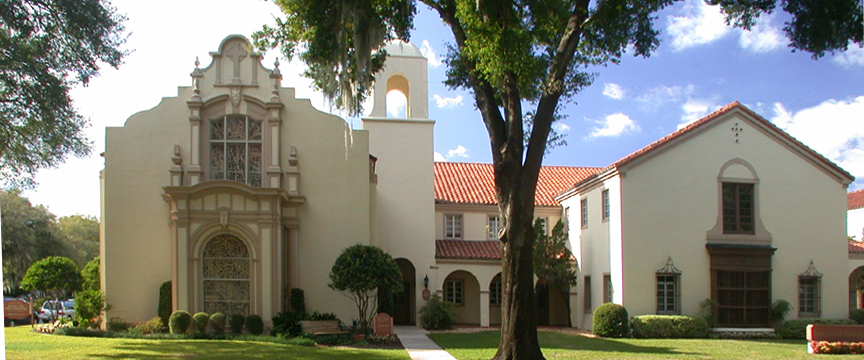
I must admit that I prefer the version of the Lord’s Prayer in Matthew over Luke. But this Sunday, as we talked about Prayer in our new Sermon Series, Revive, I saw this Scripture in a new light. If you remember, the Scripture Pastor David preached from was Luke 11: 1-8 which begins with Jesus praying in a certain place and then teaching his disciples how to pray. What I struggle with in Luke 11:5-8 is just how human and raw it really is.
As a mom, nighttime is a coveted time. It is the time I look forward too for relaxation and downtime and reconnection to my husband after a busy day. I rarely find myself out and about in the evenings because I am home soaking up school day stories, helping with dinner, bath time or entertaining the latest inspirations of my children’s imaginations (tea parties, cupcake baking, fort making and rocket ship building…just to name a few). I am fully engaged from 5-8PM in the evening and once they are in bed, I rarely want to be bothered. And so, I felt a sting of guilt when reading this passage on Sunday as if it was speaking to me. I think we all struggle with carving out time to turn off work or school or family responsibilities and the nighttime may be a coveted time for you too. There is nothing wrong with having healthy work/life boundaries and sticking to them. But what if there was something deeper in Jesus’ admonition that followed the Lord’s Prayer in Luke.
Here are the words again from the NRSV:
“5 And He said to them, “Which of you shall have a friend, and go to him at midnight and say to him, ‘Friend, lend me three loaves; 6 for a friend of mine has come to me on his journey, and I have nothing to set before him’; 7 and he will answer from within and say, ‘Do not trouble me; the door is now shut, and my children are with me in bed; I cannot rise and give to you’? 8 I say to you, though he will not rise and give to him because he is his friend, yet because of his persistence he will rise and give him as many as he needs.”
After Matthew’s version of the Lord’s Prayer came Jesus’ admonition to forgive others, but in this passage comes the assurance that God answers prayers. If a neighbor answers another neighbor’s request, then shouldn’t we also believe that God answers those who call out to God in need too? In order to better understand this comparison, we have to understand the structure of homes in a typical Galilean village. Homes were small, one or two rooms only and very close together. Therefore, if I were to have gotten up, gotten the bread, answered the door and unlocked the bolt; it would have woken up my entire family. If we think of this situation with modern eyes we may miss something. In Jesus’ day, they didn’t sleep in separate rooms, there wasn’t privacy or an entertaining area for guests. It was all one big space and so you can imagine the inconvenience for the door to be answered in the middle of the night and heaven help the family if there is a sleeping baby involved. Can you see the deeper meaning here? Not only were homes different in those days, but so was the expectation of hospitality. How far we have moved from the expectations of hospitality in today’s culture. In Jesus’ day, there was a sense of shame for any neighbor that did not provide for the needs of their friend, even if it was at an inconvenient time.
Jesus often drew parables from common experiences, like pastor’s who share their personal stories in their sermons. Maybe Jesus remembers being a kid woken up in the middle of the night for his father Joseph to offer bread to a needy neighbor. We don’t know, perhaps. Regardless, this parable requires us to compare our expectations of a neighbor with our assumptions about God. We know that God does not slumber or sleep (Psalm 121:4), and so a friend might have to be woken up to respond to a need, but our Heavenly Father knows our needs and is ready to meet them. They may not be answered in the way we hope or in the time frame we demand. But we worship a God that is not stopped by inconvenience when it comes to His Children. Therefore, we may pray confidently, not because we trust in our own persistence, but because we know that in a time of need, God is even more trustworthy than a neighbor or a friend.
I think there also something here about the use of the bread imagery. You see, bread was a staple part of the Jewish diet (I learned that quickly having travelled to the Holy Land almost two years ago). And so, when Jesus says, “I am the BREAD of life” (John 6:35) it means that Jesus is the staple and the constant part of life. You can’t survive without Him. How interesting that it is bread that the neighbor is asking for in the middle of the night, not milk or honey, or medicine, or an extra blanket, but BREAD. Maybe, just maybe this had a double meaning too. And that understood in its fullness means that we are called to meet the needs of neighbors at inconvenient times and also offer them Jesus while we are at it. It may be uncomfortable, it may mess up your routine or your coveted relaxation time, but we have been given the gift of life and we are called to share it.
AMEN











